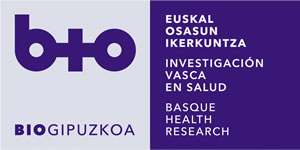NAME Animalarioa eta ebakuntza-gela esperimentala

El Animalario y Quirófano Experimental (AQE) ocupa 700 metros cuadrados en el nivel del sótano del IIS Biodonostia. Contiene tres áreas, un área de barrera, un área de cirugía experimental y un área de vivienda. Todos los animales se mantienen en condiciones de alta seguridad biológica, bajo parámetros sanitarios y medioambientales estrictamente controlados siguiendo la Directiva de la UE 2010/63/CE. Aquí se guardan colonias de conejos, ratas, conejillos de indias, ratones y, especialmente, modelos de ratones transgénicos, y la cirugía experimental en modelo de animal grande (cerdo) se realiza de forma regular en un quirófano totalmente equipado. También hay disponible un laboratorio de comportamiento, así como una sala de cirugía de animales pequeños. El AQE está registrado como un establecimiento que utiliza animales de prueba (# 200690050419). También se obtuvo la notificación de primer uso de local para realizar operaciones de uso confinado con organismos genéticamente modificados (OGM) y la evaluación de riesgo de operaciones de uso confinado con OGM para locales tipo I.
FIELDS OF APPLICATION
Additive manufacturing
Biomedical consumables
Digital health
Electromedical devices
In-Vitro diagnostics
Laboratory equipment
Medical Image
Orthopedic and rehabilitation Technology
MOST OUTSTANDING EQUIPMENT AND COMPONENTS
-
Barrier area for rodents (P2)
It has three rooms with positive pressure and one room with negative pressure for procedures with infectious material. It is equipped with two Biosafety hoods and has a maximum capacity of 576 cages on ventilated racks. All the rooms have an inhalation anaesthesia unit and a fully-equipped procedures table.
-
Experimental operating room for medium (rabbit) and large animals (pig)
The room has two anaesthesia tables, two high-resolution laparoscopy towers, a scopic and graphic X-ray arch, and two surgical microscopes. This is the area in which training is carried out in the different services offered at the Donostia University Hospital, and where surgical research projects are carried out on medium-sized and large animals.
-
Procedures and operating room for rodents
This area is equipped with seven surgical microscopes, an optical microscope, a safety hood for chemical reactive use, a refrigerated centrifuge and an inhalation anaesthesia tower connected to all work stations. This area also houses a behaviour room equipped with rotameters, treadmill, Grip Strength and compulsive behaviour testing equipment.
-
Stabling area
This area houses mice, rats, rabbits and pigs in different rooms. It is equipped with two quarantine rooms with an SAS pass-through facility in each. It also has a multi-mode room for short-term procedures using a high number of animals, with a capacity for 60 rat cages and 144 mice cages. This area is also equipped with a work table fitted with precision scales and inhalation anaesthesia equipment. The maximum capacity in this area is for 180 rat cages on ventilated racks and 504 mice cages on ventilated racks. The maximum housing capacity for rabbits would be 36 males and 72 females. In the case of pigs, it would be 16 animals.
SERVICES OFFERED BY THE ASSET
Animal experimentation ethics committee
Safeguard the animals’ well-being and to ensure the experiments’ design is in line with existing regulations, collaborating with the researchers in the analysis of the projects’ ethical implications, and issuing reports wherever necessary.
Basic Animal Facility Services
Animal cleaning, sterilization and maintenance
Preclinical evaluation of new molecules or targets and medical devices
Evaluation of drugs, molecular targets, medical devices, etc., in an animal model (Drosophila melanogaster, rodent, rat, rabbit or pig)
R+D+i Projects and procedures advice
Regulatory and methodological advice
Training and Teaching in research with animal models
Training and Teaching in research with animal models, in experimental surgery and in new medical devices. Continuous learning courses
ENTITY MANAGING THE ASSET

Contact person:
IIS Biodonostia
amaia.delvillar@biodonostia.org